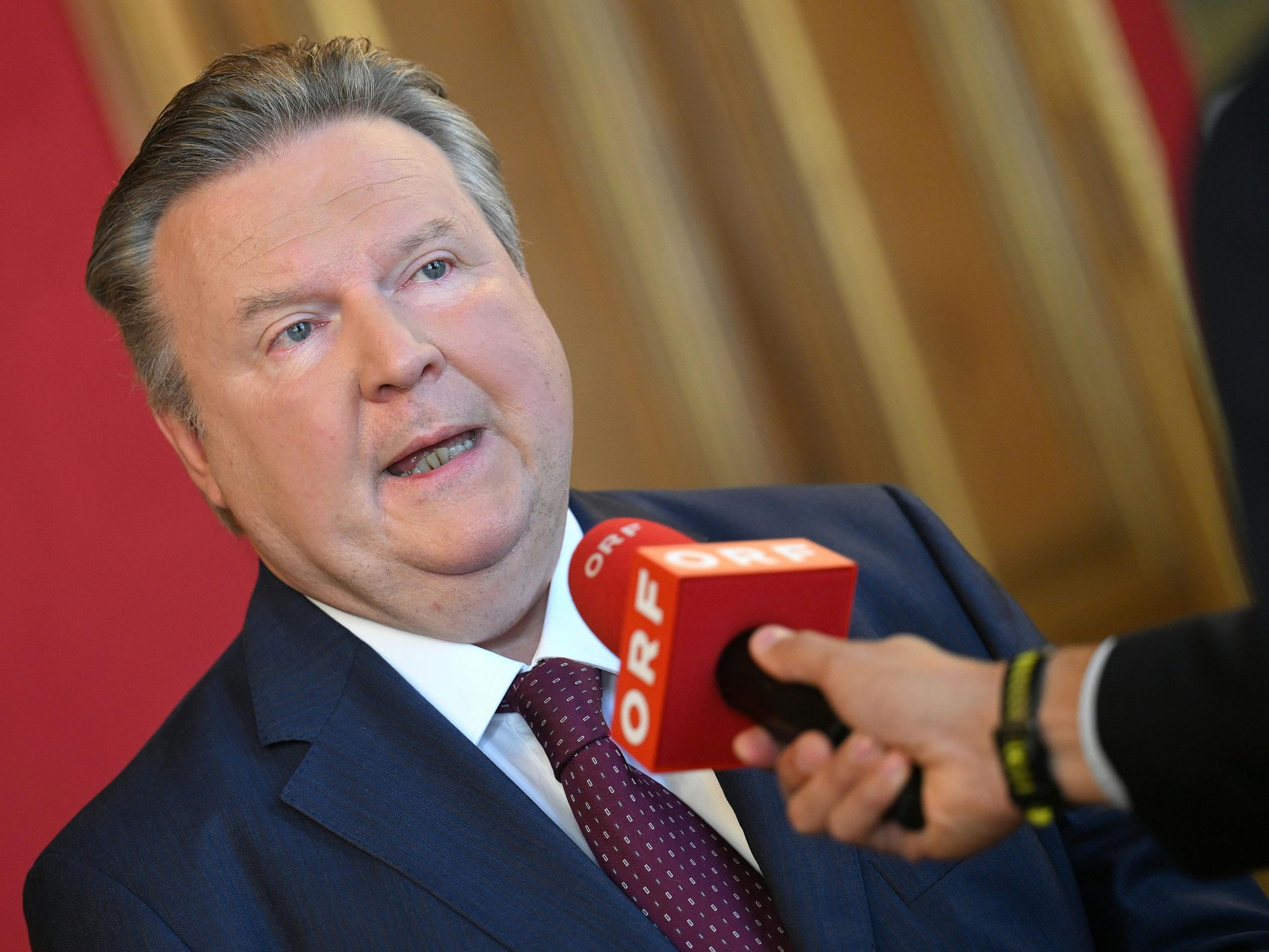Vienna Plans Cuts to Minimum Security: Children and Shared Apartments Affected

Amounts earmarked for housing will in the future also be deducted from the rent allowance for children. Shared apartments, in turn, will be equated with families, which is also expected to bring a reduction in costs. A mandatory kindergarten attendance for three-year-olds is also being considered, as Mayor Michael Ludwig (SPÖ) announced in an interview with the magazine "News". Criticism came from the opposition.
In view of the tense budget situation, Vienna is currently putting together a savings package. Price and tariff increases were already announced on Monday. Now, following the already known end of the training allowance, further measures in the area of minimum security are on the horizon. As Ludwig suggested in the interview, cuts will be made in various areas. On the one hand, this affects the allowance for children. Currently, 25 percent of the adult's allowance is already earmarked for housing costs. This contribution is deducted from the rent allowance.
Expansion of mandatory kindergarten attendance
In the future, this will also apply to children. The city hall expects savings of around 20 million euros annually. The step is to be implemented as early as next year. It is also possible that in the future, children of recipients will be required to attend kindergarten from the age of three. This is intended to facilitate the labor market integration of the parents.
Child rates could also be reduced because the costs for parents decrease due to the care. The plans regarding kindergarten are medium-term, as it was said. In response to an APA inquiry, the mayor's office emphasized that discussions will also be held with the coalition partner, the NEOS. If the project is implemented, it will only happen gradually, as space and staff are also needed for this.
Reductions in households
The change in households is also set to come into effect as early as next year. So far, individuals living together in an apartment receive the maximum rate of minimum security. This is not the case for families in a shared household. That is set to change. The savings that could be generated from this are estimated at around 75 million euros annually.
Opposition parties recently criticized Vienna for not structuring child rates in a degressive manner - and for paying the same amount of support for each child regardless of the size of the family. This was introduced under the Red-Green coalition. Apparently, this will not be changed. Ludwig pointed out in the "News" interview that the family allowance per child even increases.
Total savings of 115 million euros
However, cuts for families are indeed on the horizon with the now proposed reform. In the mayor's office, it was emphasized to the APA that, for example, a family with five children will receive about 400 euros less per month in rent assistance due to the new regulation. Overall, considering the training allowance that has already been eliminated, up to 115 million euros less in support is expected to be distributed. Vienna recently spent around 800 million euros per year on minimum security.
Ludwig has also repeatedly advocated for the handling of minimum security by the AMS. The focus would thus be more strongly directed towards integrating those affected into the labor market, he is convinced.
Greens: "heartless and forgetful of the future"
Criticism came on Thursday from all three opposition parties, albeit for different reasons. Green Chairwoman Julia Pühringer stated in a release: "Saving on children affected by poverty is heartless and forgetful of the future (...). The red-pink city government is attacking one social achievement after another with a sledgehammer." In 2010, under Red-Green, the child minimum security was first increased by 800 euros, "fifteen years later, the SPÖ has gradually lost its social conscience." The SPÖ found little merit in the criticism: "The child rates of 326.44 euros remain, of course, untouched. Those who can read have a clear advantage. It is simply wrong and irresponsible to make the Viennese believe that savings are being made on children affected by poverty," said councilor Andrea Mautz.
Cuts too little for ÖVP and FPÖ
However, Vienna ÖVP Chairman Markus Figl saw only "cosmetic changes." The payments to those entitled to subsidiary protection and the scaling of child rates need to be adjusted. This would allow savings of hundreds of millions of euros, as it would mitigate "pull factors." "Instead, Vienna remains Austria's social welfare magnet." A kindergarten obligation for three-year-olds with German language support needs is long overdue, said club chairman Harald Zierfuß.
FPÖ leader Dominik Nepp described the announced cuts as "pure eyewash." An "Afghan extended family," which currently receives around 9,000 euros net per month, would receive only 38 euros less in the future, he calculated in a release and once again demanded that social benefits be linked to citizenship.
Subsequently, the FPÖ and SPÖ accused each other of false claims. SPÖ councilor Andrea Mautz recommended the FPÖ leader "attend elementary school" and refresh basic arithmetic: "The FPÖ and its state party chairman Dominik Nepp once again prove that they can neither calculate nor are seriously interested in a constructive discussion. In fact, it is 897.71 euros per month that are paid out less." FPÖ state party secretary Lukas Brucker then identified "internal chaos" within the SPÖ: "The fact is, however, that it is not about changes in minimum security, but merely about housing assistance." Mautz, in turn, stated: "It is not about housing assistance, as claimed by the FPÖ, but about rent assistance within the Vienna minimum security - a crucial difference that one should know if one wants to participate in public discussions. Minimum security recipients have no legal entitlement to housing assistance."
(APA/Red)
This article has been automatically translated, read the original article here.





